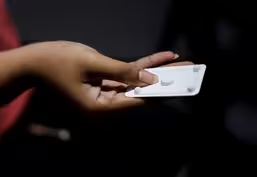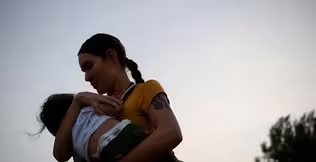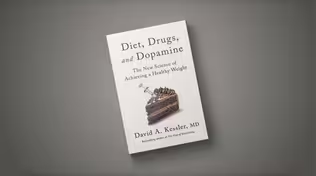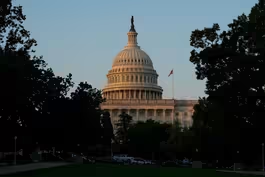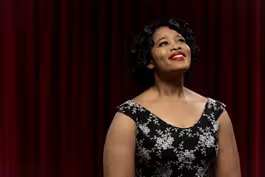
June 29, 2025 - PBS News Weekend full episode
6/29/2025 | 26m 45sVideo has Closed Captions
June 29, 2025 - PBS News Weekend full episode
June 29, 2025 - PBS News Weekend full episode
Problems playing video? | Closed Captioning Feedback
Problems playing video? | Closed Captioning Feedback
Major corporate funding for the PBS News Hour is provided by BDO, BNSF, Consumer Cellular, American Cruise Lines, and Raymond James. Funding for the PBS NewsHour Weekend is provided by...

June 29, 2025 - PBS News Weekend full episode
6/29/2025 | 26m 45sVideo has Closed Captions
June 29, 2025 - PBS News Weekend full episode
Problems playing video? | Closed Captioning Feedback
How to Watch PBS News Hour
PBS News Hour is available to stream on pbs.org and the free PBS App, available on iPhone, Apple TV, Android TV, Android smartphones, Amazon Fire TV, Amazon Fire Tablet, Roku, Samsung Smart TV, and Vizio.
Providing Support for PBS.org
Learn Moreabout PBS online sponsorshipJOHN YANG: Tonight on PBS News Weekend, Three years after the Supreme Court struck down Roe v. Wade, a decades old grassroots movement is exploring new ways to circumvent state laws restricting or banning access to abortions.
Then, a former head of the FDA on his new book exploring the risks, rewards and science behind weight loss, drugs and the life story of opera singer Pretty Yande, considered one of her generation's most accomplished and charismatic sopranos.
WOMAN: I always say that my journey is extraordinary in a sense that it's opportunity that meant time and a gift.
(BREAK) JOHN YANG: Good evening.
I'm John Yang.
Since the Supreme Court overturned the constitutional right to seek an abortion three years ago this past week, 20 states have banned or restricted access to the procedure.
Despite those hurdles, though, women are still finding routes to terminating pregnancies.
Currently, medication accounts for about two thirds of abortions.
How one of those pills fueled grassroots movements that helped change laws across Latin America is explored in The Network, a new three part podcast from NPR and Futuro Media.
MAN: Women Stop Dying.
MAN: We just started hearing that patients were taking some pills.
WOMAN (through translator): You can have a safe abortion and you can do it at home.
WOMAN: This is the story of that discovery.
But more than that, it's the story of the women behind it.
JOHN YANG: Ali Rogin spoke with podcast co-hosts Marta Martinez and Victoria Estrada, who are journalists at Latino USA, which is heard on NPR stations.
ALI ROGIN: Martha and Victoria, thank you so much for joining us.
Marta we are marking three years since the landmark Dobbs decision.
Walk us through the relative landscape of abortion access in the United States versus that of various countries throughout Latin America.
MARTA MARTINEZ, Co-host, "The Network": Since the Dobbs decision, there have been more abortions in the United States, not less.
And for a lot of people, it might sound shocking, but one of the experts we talked to who had worked for Planned Parenthood Global for many years, she was the one who saw what happened in Latin America 30 years ago.
And it was exactly the same thing.
In countries where abortion was mostly illegal or very highly restricted women found a way using abortion pills to have access to safe abortions and they created these underground networks that were helping women access those abortions.
And so what she told us is that she is seeing this happening in the United States more and more too.
We are seeing more access to abortion while at the same time it's becoming less legal.
ALI ROGIN: And the journey of this podcast, Victoria, starts in Brazil.
Walk us through why the experience of women there is so meaningful and also the fact that it informs so much of what we're seeing right now in the United States.
VICTORIA ESTRADA, Co-host, "The Network": Since Roe was overturned, we know that many Americans can't go to a doctor to have an abortion and some are turning to this abortion method that's been used around the world for decades.
And it all actually started in Brazil back in the 1980s where abortion was illegal in most cases and so women couldn't go to a clinic, couldn't turn to a doctor.
And in the mid-1980s, a pill that was actually created in the U.S. called misoprostol, or the commercial name is Cytotec, came to Brazil in 1986.
The side effect was that it wasn't recommended for women because it could cause contractions.
And women in Brazil saw that possible side effect and some started taking that pill and that they discovered this new way to have an abortion that is at home and is very safe.
And so in the first episode of the series, we chronicle this discovery from the point of view of doctors who at the time were witnessing how other self-induced abortion methods that the women were using were leading to various complications, hysterectomies and even death.
ALI ROGIN: I want to play a short clip from early on in the podcast describing this global network that the series is named after.
WOMAN: It's hard to even describe because it's not formal or centralized.
There's no CEO, no headquarters.
WOMAN: Some people work together, but plenty don't know each other.
They're midwives and nurses, grandmothers and friends.
WOMAN: This network crosses borders and reaches people throughout the world, from South Africa to Myanmar to Mexico and all over the United States.
ALI ROGIN: How does this network work and what do we know about how it started?
MARTA MARTINEZ: There is no one person who started all of this.
It was really a whisper network in Brazil, mostly by low income women of color, who really needed access to an abortion and were willing to experiment with their bodies.
Because at the time when they started using Cytotec or Misoprostol, and that's actually a pill that was created for stomach ulcers.
So they figured out this and they started just telling each other, you can just go to the pharmacy, you don't need a prescription.
Just get this pill and you can take it in this way and then this other way.
And this knowledge went beyond borders and started spreading across Latin America.
And in a matter of a decade, pretty much the whole region was using misoprostol in this way.
ALI ROGIN: What are some of the biggest challenges to this network as it exists in.
VICTORIA ESTRADA: The United States, in every state except Nevada, there are no laws that criminalize self-managing your own abortion.
But prosecutors are getting creative and using other types of laws to target women.
And the pills have also become a target.
We've seen how in Louisiana, misoprostol and mifepristone, which are the two pills used for abortion have been declared controlled substances.
And so having the pills can carry a fine, can land you sometimes in jail.
And they're also seeing ways to criminalize the people who support other people who are getting an abortion.
In Texas, one of those laws that target people who support others who are having abortions is the SB8 law, which makes it illegal to quote eight and abet a woman having an abortion.
But it's crucial also to say that the law doesn't define what that means.
And so it does put pretty much everything the network does into a legal gray area.
But it is a legal gray area.
And so I think that people are finding ways to work within those frameworks.
ALI ROGIN: Marta Martinez and Victoria Estrada, co-hosts of the new podcast "The Network," thank you so much for joining us.
MARTA MARTINEZ: Thank you for having us.
VICTORIA ESTRADA: Thank you for having us.
JOHN YANG: In tonight's other headlines, the Senate has begun debating President Trump's tax and spending bill that Republicans hope to get to the oval office by July 4th.
The Senate narrowly agreed late last night to take up the measure, but the Democrats forced Senate clerks to read the entire 940 page bill out loud, a process that took more than 15 hours.
The nonpartisan Congressional Budget Office says the Senate version of the bill would add more than $3 trillion to the national debt over 10 years.
And Senator Thom Tillis of North Carolina, one of two Republicans to vote against advancing the bill last night, said he won't run for reelection.
Tillis said the bill's Medicaid provisions would be devastating to his state.
In Ukraine, officials say that overnight, Russia carried out one of its biggest aerial attacks of the war.
Russia sent more than 400 drones and decoys and 60 missiles into the country.
At least three people were killed on the ground.
And Ukraine's air force said a pilot was killed when an F16 fighter jet crashed.
The Israeli military has ordered a massive evacuation for areas of northern Gaza.
The IDF said it will allow forces to move more freely as they seek out Hamas targets.
And there may be movement in efforts for a cease fire.
A top adviser to Prime Minister Benjamin Netanyahu is to be in Washington this week as President Trump has said a deal could be reached soon.
The talks have been hung up over whether a cease fire would end the war.
Still to come on PBS News Weekend, a former FDA chief opens up about his own experiences with weight loss drugs.
And a celebrated soprano from South Africa talks about her journey to the top of the opera world.
(BREAK) JOHN YANG: Native American and indigenous people say the Trump administration's proposed cuts to health and education programs for their communities is a continuation of the federal government's historical failure to deliver on what it promised in land and peace agreements.
Edgar Villanueva is founder and CEO of the Decolonizing Wealth Project and Liberated Capital, which channels philanthropic funding toward Native American and indigenous communities.
He's an enrolled member of the Lumbee Tribe in North Carolina.
Edgar, the cuts in the spending and tax bill that's in Congress now, what's the scope of these cuts to programs aimed directly at Native American communities and how would they affect the lives of Native Americans?
EDGAR VILLANUEVA, Founder and CEO, Deconolizing Wealth Project: You know, the new budget cuts seek to eliminate up to $1 billion on reservations.
This would impact education, health care, law enforcement.
You know, it is pretty much every aspect of our lives.
And these cuts to those services are catastrophic and super harmful for our community.
JOHN YANG: In addition, the cuts in programs, they're sort of broader programs like SNAP and Medicaid.
How would they affect Native Americans?
EDGAR VILLANUEVA: Any cuts to those programs would disproportionately impact Native communities because our communities experience the highest rates of poverty in the country.
We also see some of the highest rates of poor outcomes when it comes to health care, education, so forth and so on.
You know, the programs that are designated for Native communities only, like Indian Health Service, for example, has never really been adequately funded.
And so when we're slashing Native specific programs and we're also slashing other programs that are safety net, we are as sort of a double whammy of really gutting out all of these provisions that provide basic services that are really a human right for folks living in this country.
JOHN YANG: You say these programs have always been underfunded.
Has it ever been close to what you needed?
And it doesn't matter what party's in power.
EDGAR VILLANUEVA: You know, it's the provision of services for Native Americans has always been a not a party issue per se.
We've had administrations that were more friendly toward our causes in our communities than others.
But it's always been a struggle.
But it's really hard like, imagine being a member of the Navajo Nation, where families drive 100 miles for a single checkup, right?
And so when we're cutting out the opportunity to even have access to health care, we're seeing a lot of uncertainty in our communities.
JOHN YANG: You know, the Supreme Court recognizes the legal trust obligation that the federal government has from these agreements that you've talked about.
Can anything be done to try to enforce that?
EDGAR VILLANUEVA: As you said, our nation's founding documents and hundreds of treaties established a government to government relationship that historically it was supposed to be built on mutual respect and guaranteed services.
And so all of this, all of these cuts happening now in the name of policy tweaks or efficiency really are breaches of trust and law.
And so I do imagine that in time, we'll find ourselves experiencing more time in court pushing back on these decisions.
JOHN YANG: How does this make you feel about how the government and the federal government, maybe the majority, maybe look upon the Native Americans and think about Native Americans.
EDGAR VILLANUEVA: You know, it's really disheartening.
We are the first peoples of this country.
We have given so much, we have shared so much, and we have, since the start of this country, experienced oppression and harm.
And so we've always been in a place where we have felt invisible, not respected.
And of course, for me, it feels that these cuts are just reinforcing that distrust and that relationship where we have honored our part and we just want the federal government to honor their part.
JOHN YANG: Edgar Villanueva, thank you very much.
EDGAR VILLANUEVA: Thanks for having me, John.
JOHN YANG: According to the CDC, 1 in 5 American adults is living with obesity.
In the past few years, many have turned to weight loss drugs containing a hormone that slows digestion and helps with sustained weight loss.
It's called glucagon-like peptide-1 or GLP1.
Ali Rogin is back with her conversation with Dr. David Kessler, a former head of the FDA and himself a user of weight loss drugs.
In a new book, he advocates for their use, but says they shouldn't be seen as a quick and easy fix.
ALI ROGIN: Dr. Kessler, thank you so much for being here.
When you wrote this book, it was during a time when yourself were experiencing challenges with your weight.
What was happening in your life at that time?
DR. DAVID KESSLER, Author, "Diet, Drugs, and Dopamine": I had the privilege of co-leading Operation Warp Speed, an intense period for all of us, you know, through the pandemic.
And I found that I had gained 40 pounds over that period of time.
I was just, you know, in front of my computer working seven days a week, looked in the mirror and just didn't like myself and wanted to understand, you know, what was going on.
ALI ROGIN: One of your conclusions, I would say, is that you think GLP1s other weight loss medications are a good tool for some people to have in their arsenal, but that there need to better guardrails around it.
What is missing from the equation currently.
DAVID KESSLER: To understand these ultra-formulated foods, I mean, they're addictive.
The GLP-1 drugs, you know, can help tamp down that addiction.
But ultimately, you know, the important thing with this, these GLP-1 drugs is they really allow you to change your relationship with food.
We're living in this environment.
We took fat and sugar, fat and salt, fat, sugar and salt.
The perfect trifecta, you know, to keep us eating more and more, you know, put it on every corner, made it available 24, 7, made it socially acceptable to eat anytime.
Right.
So I mean, it's no surprise what happened to us.
ALI ROGIN: That's by design.
Right.
You lay out in the book the steps that food manufacturers take to make these foods basically addictive.
DAVID KESSLER: They will say they just have designed to give us foods that we want.
They will design foods to achieve this bliss point, but that those are the, you know, reward centers of the brain.
Those are the addictive centers of the brain.
So how do these drugs work?
They're no miracle pills.
Right?
ALI ROGIN: Right.
DAVID KESSLER: They are important tools.
They work by keeping food in your stomach longer, they work on the gut, they work on that part of the brain, but they make you know, feel full.
But the problem is that if you look, I mean, in this country, the average amount of time someone's on these drugs is maybe eight, nine months and then they're off it.
And these drugs only work while you're on them.
You gain back the weight.
So you know, what you have to do is you have to condition yourself, right, to change your relationship with food.
Otherwise, you know, the drug companies, the premise is to be on these for life.
So we have to learn how to use these drugs wisely.
But they are only one tool in a basket.
I mean, of tools that have to include nutrition therapy, physical activity, behavior changes.
Look, this isn't willpower.
This is biology.
But finally, you can do something to change your health.
But you shouldn't be afraid to ask for help.
You need somebody, well, physicians who are well trained, a dietitian.
I mean, you need a team to help you deal and overcome this addiction.
ALI ROGIN: And another part of the solution that you lay out is really a rethinking of food in the American diet and how we educate people on their food choices.
You talk in the book about the idea of a health populism movement now, of course, the Make America Healthy Again movement.
MAHA, this is a central pillar of what they're talking about is bringing healthy foods into schools, making them more available, educating people on food choices.
And of course they are led.
The figurehead is HHS Secretary Robert F. Kennedy.
What do you think of how that movement is addressing these issues and about the RFK effect more broadly?
DAVID KESSLER: The focus on these highly processed, I call them ultra-formulated foods is I think absolutely right.
I think we certainly struck a populist chord about concern about chronic disease.
The fact is, many of us in our senior years, I mean, are living, we're living longer, but you know, in more disabled because of cardiac renal diabetes.
So we have to focus on these chronic diseases.
I'm not sure the focus is exactly right.
I mean, there's, you know, they're focusing, however laudable, you know, on the colored dyes, on certain oils.
The real problem is this toxic fat, I mean, in our bodies.
And we have to reduce that metabolic chaos so we finally, finally have the tools to reclaim our health.
There should be nothing embarrassing or, you know, any shame that I need a little help, right?
But again, these drugs may have real adverse events.
They have to be managed wisely.
They are not the cure all one tool.
ALI ROGIN: The book is "Diet, Drugs and Dopamine: The New Science of Achieving a Healthy Weight."
Dr. David Kessler, thank you so much.
DAVID KESSLER: Thank you.
JOHN YANG: Finally tonight, the story of international opera singer Pretty Yende.
Growing up in South Africa, she hadn't even heard of opera until she was almost out of high school.
Now she's being hailed as one of her generation's most accomplished coloratura sopranos.
Here's Ciaran Jenkins of Independent Television News.
CIARAN JENKINS (voice-over): The historic reopening of Notre Dame Cathedral.
Center stage.
A voice that makes time stand still, but the world almost never got to hear it.
Pretty Yende grew up in rural South Africa as apartheid came to an end.
She didn't hear a note of opera until she was 16.
Somehow, six years into her operatic journey, she could sing like this.
She fundraised for a flight to Europe, embodying the hope of a new generation of South Africans.
Since then, Pretty Yende has joined legends on the global stage.
A unique voice that had been waiting to blossom.
PRETTY YANDE, Opera Singer: At five years old, my grandmother taught me how to sing.
I was a happy child and music was around the house.
We would sing every night after supper, hymns from the church.
My mom and my aunts would be washing dishes in the kitchen and we would start a hymn.
My uncles and my dad in the other room.
We would all literally.
Harmony was something that was always around me.
I didn't know well how to speak English and so I had to learn English watching the cartoons.
CIARAN JENKINS: What were you speaking?
PRETTY YANDE: I was speaking Zulu because I'm a Zulu girl.
I didn't know about opera at all until I was 16, watching TV and I saw the British Airways advert.
CIARAN JENKINS: What was it like hearing that?
PRETTY YANDE: The harmony of those voices that I -- something in me, really.
Somebody turned on the lights and said, okay, now you're alive.
So when I went to my high school teacher at that time to ask him what it was, he was the choir master.
He told me it's called opera.
And I didn't even know it had a name.
I didn't know it was humanly possible.
And so I said to him, can human beings do it?
Because it didn't sound human at all.
My journey is extraordinary in a sense that it's opportunity that met time and a gift.
Many, many other South Africans have had these incredible gifts and talents but were never given the opportunity to explore them.
So I'm very grateful for it because I think if I was born in another time, I would not be here.
CIARAN JENKINS: And there are people who put you in the league with the likes of Maria Callas and those truly great singers.
It's like a Stradivarius of a voice, you know, how do you switch it on and what makes it great rather than just very good?
PRETTY YANDE: It's always on.
It's always on because it's out of my control.
CIARAN JENKINS: What would the 20 year old Pretty Yende who hadn't yet left South Africa to conquer the world say to this version of you?
PRETTY YENDE: I am so proud of you.
Thank you for taking the leap of faith and thank you for not giving up and for staying true of why you do it, to connect, to share the joy that I heard when I heard music.
And don't give up.
I'm tearing up because there's a level of not knowing when you have a dream and you don't know how big the dream becomes and then the stress and then the pressure.
But I'm just a human being with a gift that I want to share with as many souls as possible.
And so the circumstances always said no.
But that little faith brought this 20 year old to this point.
40 year old here.
CIARAN JENKINS: This certainly worked out.
PRETTY YANDE: So well.
So well.
JOHN YANG: That's Ciaran Jenkins of Independent Television News.
And that is PBS News Weekend for this Sunday.
I'm John Yang.
For all of my colleagues, thanks for joining us.
Have a good week.
Grassroots network helps women circumvent abortion bans
Video has Closed Captions
Clip: 6/29/2025 | 6m 18s | The grassroots network helping women circumvent abortion bans and restrictions (6m 18s)
How Trump’s proposed program cuts affect Native communities
Video has Closed Captions
Clip: 6/29/2025 | 4m 13s | How Trump’s proposed health and education program cuts affect Native communities (4m 13s)
New book explores the science behind GLP-1 weight loss drugs
Video has Closed Captions
Clip: 6/29/2025 | 6m 15s | New book by former FDA head explores the science behind GLP-1 weight loss drugs (6m 15s)
News Wrap: Trump’s big budget bill advances in Senate
Video has Closed Captions
Clip: 6/29/2025 | 1m 57s | News Wrap: Trump’s big budget bill advances in Senate (1m 57s)
Pretty Yende’s journey from South Africa to opera stardom
Video has Closed Captions
Clip: 6/29/2025 | 4m 58s | Soprano Pretty Yende’s journey from rural South Africa to the top of the opera world (4m 58s)
Providing Support for PBS.org
Learn Moreabout PBS online sponsorshipSupport for PBS provided by:
Major corporate funding for the PBS News Hour is provided by BDO, BNSF, Consumer Cellular, American Cruise Lines, and Raymond James. Funding for the PBS NewsHour Weekend is provided by...
